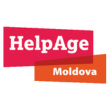Organizații vizate:
Anunțuri de Angajare
- Detalii
- Categorie: Angajări
Terms of reference. Facilitator for Organisational capacity assessment
Informațiile prezentate în articolul de mai jos pot să nu mai fie actuale sau să nu mai reflecte activitățile și programele curente. Anunțul este păstrat în arhivă pentru a asigura transparența și accesul public la informațiile despre inițiativele și proiectele implementate anterior.
TERMS OF REFERENCE
FACILITATOR FOR ORGANISATIONAL CAPACITY ASSESSMENT
Duration of Assignment:
8 working days in the period 24 October – 15 November 2021
- BACKGROUND
The Child Rights Information Center (CRIC) is a non-governmental organization set up in 1999. CRIC’s vision is a society with more care, understanding and respect for the human beings. CRIC’s mission is to inspire adults to listen to the voice of every child and to work with children, families, authorities, public services and civil society in order to develop and apply solutions based on child rights.
CRIC interventions are based on the UN Convention on the Rights of the Child (CRC). We permanently monitor state efforts to implement its obligations under the CRC.
CRIC is a strategic partner of Save the Children International office in Kosova/o, which is implementing a project of Swedish International Development Cooperation Agency (SIDA). Sida has a strong commitment to support the capacity strengthening of local civil society organizations. Part of Save the Children’s key requirements is to indicate a clear plan on how a certain percentage of the grant will be used for capacity strengthening.
For the purpose of measuring progress within Save the Children Sweden (SCS) OCD support, each selected partner organisation had to undergo an Organisational Capacity Assessment (OCA) at the beginning of the funding period (2017). The OCA served as a baseline and had to be followed up yearly. The OCA workshop had to be conducted at the beginning of the process and at the end of the funding process and aims to involve the entire organisation in a reflective exercise on organisational development.
As a part of the phase out, end-line learning and final reporting on the Sida CSO programme, CRIC will undergo an end-line OCA to capture quantitative and qualitative data on the OCD process through the programme period, and enable/allow SCI CO to report on results as well as collect learnings for future programming.
CRIC will reassess its previous OCA to create an end-line for the OCD process within the CSO programme 2017-2021. In the end, CRIC’s existing OCD plan will be revised based on the new OCA as part of the phase out period and beyond, in line with CRIC’s own strategic plan, independent of future funding from Sida.
The OCA is based on the idea that it is possible to obtain an overall picture of an organization’s capacity and development profile by making systematic reviews and assessments of three basic aspects that are analyzed with the aid of eight variables.
The eight variables, here called ‘Areas of Capacity’ are;
To Be:
1. Governance and Structure
2. Culture and Inclusion
3. Management, HR and Staff
To Do:
5. Implementation and Quality
6. Participation
To Relate:
7. Networking and Communication
8. Influence and Legitimacy
2. OBJECTIVE AND SCOPE
An Organisational Capacity Assessment (OCA) is a process that seeks to assess the capacity of any organisation across a broad range of topics. The overall objective of the consultancy is to:
- Conduct an Organizational Capacity Assessment by facilitating a participatory 3 day online workshop using the methodology outlined in the SCS tool for OCA. The workshop aims to capture quantitative and qualitative data on the OCD process through the programme period and identify areas for organizational improvement in order to achieve sustainable results.
- Ensure thorough documentation throughout the workshop and produce a report summarizing the outcomes.
- Assist CRIC with developing a four-year OCD plan to address the identified areas of improvements identified in the workshop.
It should be emphasized in the introduction of participatory workshops that different opinions are encouraged and the facilitator's role is to lead the discussion and ensure that the outcome reflects the reality in the best way. Discussion and scoring on each of the criteria allows the organization to determine gaps and make recommendations for building the required capacity.
3. METHODOLOGY OF THE ORGANISATIONAL CAPACITY ASSESSMENT
The OCA and its workshop should be used as a first step in the process of organisational development and should involve many diverse representatives of the organisation through a participatory workshop consisting of a questionnaire and data entry sheet. The workshop aims to look at the overall situation at the time of assessment through the opinion of various groups within the organization and identify current situation within various aspects and identify areas of improvements. The workshop consists of an introduction, division of four pre-decided groups that answers a large set of questions within the group and a plenary that brings all groups and their answers together and where the facilitator leads a discussion with all groups to find a consensus on the current state of each question and area. Current situation and areas of improvements are identified and documented during the plenum.
4. ROLES AND RESPONSIBILITIES
4.1 Facilitator:
The facilitator will be responsible for:
- Become familiar with the OCA Tool.
- Lead the participatory online workshop with CRIC staff and partners. The workshop will last three days and will be facilitated in Romanian language.
- Complete in detail the OCA Tool (except for the finance/grants part)
- Providing the Capacity Needs assessment report.
- In coordination with CRIC identify the priority areas for organizational development for the next 4 years and complete the OCD Framework
- Deliver documents and other deliverables on a timely manner
- Workshop material (OCA Tool and Manual), will be provided by CRIC.
4.2 CRIC
CRIC will have the responsibility for the overall management of the facilitator and this will include the following:
- Provide the Save the Children OCA Tool and manual to the facilitator for the workshop purposes
- Reviewing and approving the proposed methodology
- Organize the online workshop
- Ensuring that CRIC staff will take part in the workshop
- Supporting facilitator to invite the staff and/or members
- Monitoring the delivery of milestones
- Reviewing and approving the OCD Framework template and final Capacity Needs Assessment Report.
- The finance/grants part of the OCA tool will be prepared by Save the Children
- Ensure completion of the OCD Framework detailing the OCD work for the next coming years.
5. KEY DELIVERABLES
- Maintain neutral and professional approach during the review process and during the overall workshop of the assessment.
- Facilitation and thorough documentation of participatory online workshop.
- Draft comprehensive validated report which includes findings of the OCA and recommendations for the continued development of organisational capacity.
- OCA Tool to be completed in English
- Final report submitted
- Preparation of OCD Framework (in English) together with CRIC.
6. DURATION AND TIMEFRAME
The contract of the assignment should be for 8 working days in the period 24 October – 15 November 2021.
Familiarization with OCA tool and initial meetings: 2 days
Facilitation of OCA participatory online workshop: 3 days
Report writing: 2 days
Feedback meeting and OCD Framework development with CRIC: 1 day
7. QUALIFICATIONS AND COMPETENCIES OF CONSULTANT
- Advanced degree in economics, development studies, social sciences or related discipline
- A minimum of ten (10) years experience in conducting organizational capacity needs assessments, experience with self-assessment processes will be an advantage;
- At least 5 years of experience working in organizational development within civil society
- Excellent analytical, oral and written communication skills in English.
- Experience in monitoring, evaluation and reporting.
- Strong facilitation skills and ability to lead a plenary and document simultaneous
- Strong interpersonal skills and the ability to communicate and work well with diverse people.
8. APPLICATION PROCEDURE
Applications must be sent in English and entail the following:
- Expression of Interest and availability;
- CV should be presented;
- Two references from similar assignments; and copies of the reports they prepared (if applicable)
- Expected remuneration, in the form of gross fee per day
Application should be clearly marked “Expression of Interest for Needs Assessment Organizational Capacity Development” and submitted as electronic copies before October 21, 17.00 hours local time to: ciddc@yahoo.com.
Contact person – Vasile Coroi, 060931284.
Only short-listed candidates will be contacted.
- UCIPE (Proiectul PEEM) Specialist/ specialistă în eficiență energetică
- Centrul Național de Prevenire a Abuzului față de Copii (CNPAC) angajează psiholog/ă în cadrul Centrului regional de asistență integrată a copiilor victime/martori ai infracțiunilor din zona de Nord
- "Mă Implic, Phase 2" project is hiring a Legal Advisor on National Reforms and Public Administration
- Qu25/03045:GTF/Consultant for Energy Audit Program Support and Quality Assurance
- BNM angajează economist/ă principal/ă responsabil/ă de reglementarea activității entităților din sectoarele AEÎ, OCN, BIC
Angajări pe Telegram
Nu pierdeți niciun anunț de angajare postat pe site! Urmăriți Canalul dedicat pe Telegram:

Top organizatii
2025 CIVIC DIGITAL SOLUTIONS
Email: support@portal.civic.md








